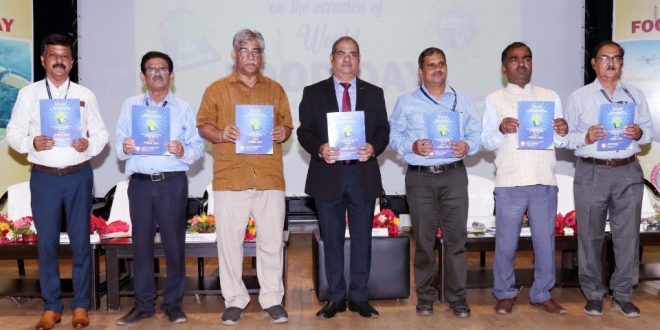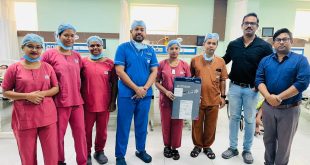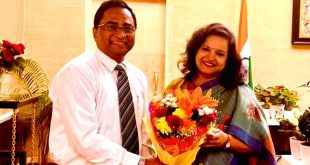Bhubaneswar: Odisha has been facing a unique challenge in the area of food security affecting children which calls for urgent action, eminent civil society leader Mr. Jagadananda said on Wednesday.
Around 29 per cent of children under five years of age are found to be stunted while mothers in the 15 to 29 age group suffer from malnutrition, Mr. Jagadananda, former member of the State Planning Board and Co-Founder of the Centre for Youth and Social Development (CYSD), said.
The malnutrition scenario was even more precarious in tribal areas, he said.
He was speaking at the inaugural function of a national symposium on ‘Artificial Intelligence and the Right to Food: Advancing Agriculture for a Better Future and a Better Life’ organised at the Institute of Agricultural Sciences (IAS), faculty of agricultural sciences of Siksha ‘O’ Anusandhan Deemed to be University here.
Mr. Jagadananda referred to Odisha’s over dependence on rain-fed agriculture saying only around 30 per cent of the agricultural area was under irrigation.
The need, he said, was to focus on climate resilient agriculture while pointing out that there was a link between water management and food security.
The program, which was presided over by SOA Vice-Chancellor Prof. Pradipta Kumar Nanda, was also addressed by Dr. Govinda Chandra Acharya, Principal Scientist and Head, Central Horticultural Experiment Station of ICAR, Bhubaneswar, Prof. Santosh Kumar Rout, Dean of IAS and Prof. Jyoti Ranjan Das, Dean (Students’ Welfare), SOA.
Mr. Jagadananda said that India’s constitution had included Right to Food Security while the National Food Security Act, 2013 had codified this right allowing the citizens of the country to live with dignity. “The state is bound to operationalise this right,” he said.
Dr. Acharya referred to the recent report of the Global Hunger Index (GHI) of 2024 which has placed India at the 105th position saying it called for urgent action for promotion of food production and improvement in the quality of agriculture.
The GHI report has categorized India’s position as ‘serious’ in terms of hunger analysis while neighbouring South Asian countries like Bangladesh, Nepal and Sri Lanka were listed in the ‘moderate’ category, Dr. Acharya said.
Concerted efforts are necessary to attain the United Nation’s Sustainable Development Goal of food security by 2030, he said adding issues like climate change were posing difficulties.
Prof. Nanda said the challenge to attain the SDG goal was huge as India was the most populous country and the resources were limited.
SOA had set up two research centres—Centre for Environment and Climate and Centre for Climate Smart Agriculture– specifically to conduct research on climate and develop climate resilient agriculture, he said.
Prof. Bibudha Parasar, Program Convenor for the event, welcomed the guests while Prof. Saroj Kumar Mohanty, Professor in the department of Plant Physiology, proposed the vote of thanks.
 Update Odisha-Latest Odisha News I Breaking News Get latest news on Odisha, Govt. Jobs, OSSC, OPSC, Entertainment, Crime, Sports, and Education
Update Odisha-Latest Odisha News I Breaking News Get latest news on Odisha, Govt. Jobs, OSSC, OPSC, Entertainment, Crime, Sports, and Education



